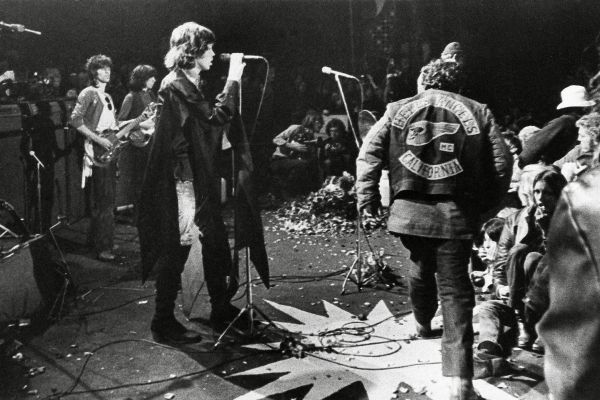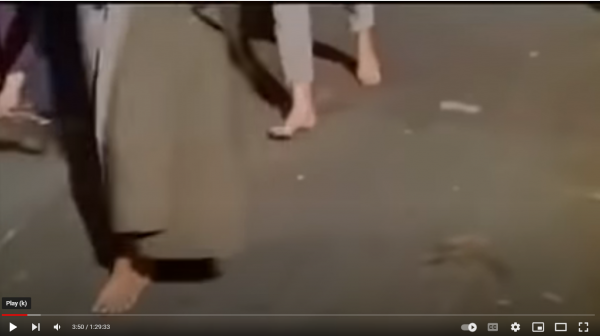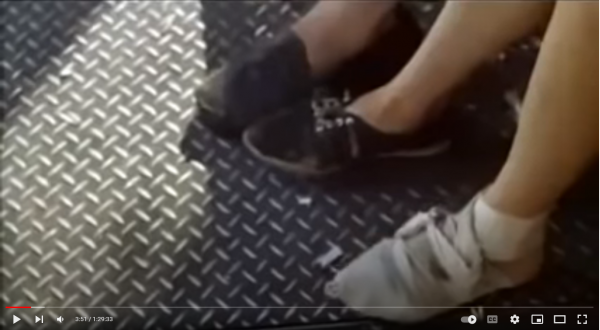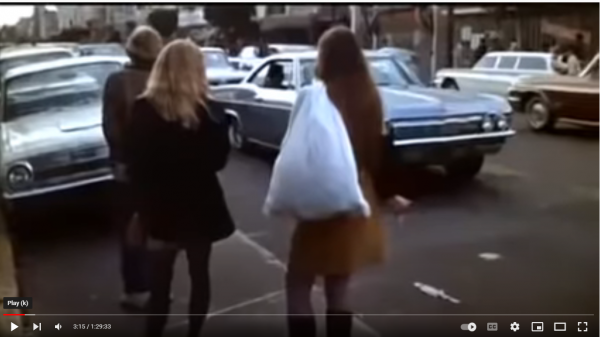The 60s Counterculture
By the time I came of age—that is, in the mid-1970s—the countercultural glory of the 1960s had already crashed. The disastrous Rolling Stone Free-Concert at the Altamont Speedway in California signalled its end, hastened by drug-use and motorcycle gangs—initially two icons that fueled the magic of the 60s.
Cultural critics and historians may believe that the Woodstock festival personifies the heyday of the Counterculture. I thought it was a disaster. A mob of non-paying visitors shouted "Free music for the People!" and broke through the fence--using that silly slogan to avoid paying to attend the concert. They nearly bankrupted the concert's promoters. Bad drugs, bad food, mediocre music, and a "sea of mud"? Thank God, I wasn't there!
On the other hand, the movie Psych-out, filmed in 1968 and starring a young unknown named Jack Nicholson and the actress Susan Strasberg showcases the Counterculture close up. The movie takes place in the Haight-Ashbury section of San Fransisco and tells a basically tragic story of upper-middle-class white kids who put their souls on the line for an unsound lifestyle. Their bare feet on the hard, concrete pavement speak for the risks of that lifestyle.
In the same fit of nostalgia, I listened to the song "White Bird" by a 1960s folk-rock group with the curious name It's a Beautiful Day. "White Bird" implores upper middle-class white girls to escape the mindset, boredom, and suffocation of suburban America. "White bird must fly, or she will die." Some girls responded to the song and ran away to Haight-Ashbury.
Girls hitchhike on the streets of Haight-Ashbury. I think they want more than a ride.
They thought the answer to their boredom was to make themselves vulnerable to their surroundings and open themselves to new experiences. That the counterculture went down in infamy, that the real world of violent crime and unclean street-drugs hurt them, hurts me, too. A lot of haywire idealism—human losses in the peace-loving American culture. For nostalgia's sake, I post a snippet of Psych-out.
Five or six years ago, during Labor Day Weekend, I visited my favorite wine-shop, which hosted a wine-tasting event, with 1960s-era folk-music and refreshments. On the balcony outside, sixtyish-looking patrons with youthful spirits, dressed in shorts, colorful shirts, and straw hats, celebrated the end of another Summer. While the musicians took a break, I started hearing Dylan's "Outside the Gates of Eden" in my head. I've always heard music in my head—Dylan reviving me.
I looked at the well-to-do patrons and thought some of them must have embraced haywire idealism earlier in their lives, '60s marchers for one cause or another. I wondered if they had enough courage to embrace idealism again and engage in one more march. This time around, they would resolve the disunity in the nation. The Counterculture may be the only force that has experienced dissent first-hand, that can recall going against the grain.
I would like to revitalize the Counterculture, to give it a new mandate, and bring about the division of our disunited country, thus saving it from civil war and spiritual rot.




